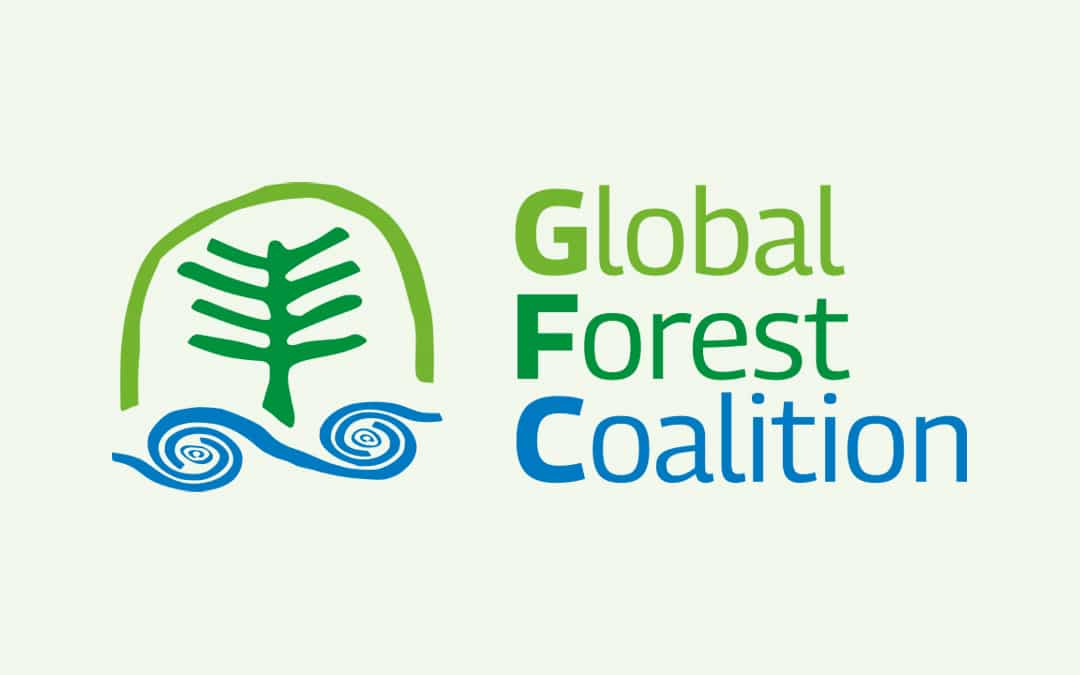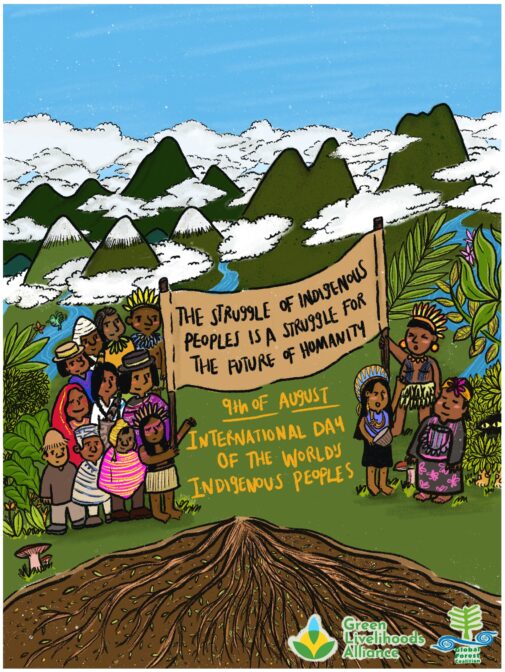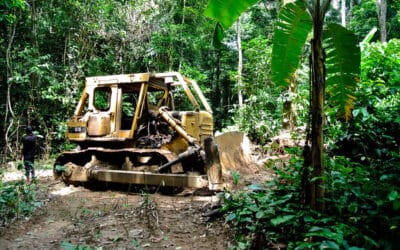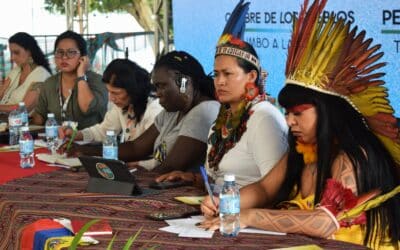“My struggle is to honour grandma’s struggle: every day, tirelessly, and forever. To fight against the capturing spirits of our spirits, of that which hardens us and makes us incapable of transformation every day.”
Trudruá Dorrico, Makuxí Indigenous writer.
By Valentina Figuera Martínez, Gender Justice and Forests Campaign Coordinator
On 9 August, the world comes together to mark the International Day of the World’s Indigenous Peoples. This day serves as a poignant reminder of the ongoing struggles faced by Indigenous communities across the globe, and in particular, those faced by Indigenous women. It is an opportunity to recognise their invaluable contributions to preserving biodiversity, protecting their ancestral lands, and upholding cultural traditions that enrich humanity. On this day, we recognise the importance of bringing to light Indigenous voices, particularly Indigenous women, and the urgent need to support their fight for land rights, self-determination, health, free, prior and informed consent and the preservation of their cultural traditions and customs.
The Significance of Indigenous Peoples in Biodiversity Conservation:
Indigenous peoples have a profound connection to the natural world, embodying centuries of traditional knowledge about ecosystems, flora, and fauna. Despite representing less than 5% of the global population, they have been recognised as protectors of approximately 80% of the world’s biodiversity. This remarkable contribution is largely due to their deep-rooted spiritual, cultural, and sustainable practices that harmoniously coexist with nature.
Land Rights and Biodiversity Conservation:
One critical aspect of empowering Indigenous communities is recognising and protecting their land rights. Studies have shown that areas with strong Indigenous and community land rights experience lower rates of biodiversity loss, deforestation, and forest degradation. By securing these rights, Indigenous peoples can continue their stewardship of the land, ensuring its preservation for generations to come.
Recent Achievements and Ongoing Struggles:
Over the years, the unwavering efforts of Indigenous peoples and their allies have led to significant milestones in gaining legal recognition of their ancestral lands. According to a recent report launched by the Rights + Resources Initiative, between 2015 and 2020, Indigenous Peoples, Afro-descendant peoples, and local communities in various regions were granted legal recognition to over 100 million hectares of additional lands. These victories are a testament to their tenacity, resistance and advocacy.
However, despite these achievements, the implementation of existing legal frameworks remains a pressing concern. Indigenous lands continue to face invasions and attacks, posing a threat not only to the communities but also to the rich biodiversity that relies on their guardianship.
The International Day of the World’s Indigenous Peoples is not only a day of commemoration but a call to action for the defence of their social, cultural, economic, holistic and political world vision as an effective response to forest and biodiversity loss.
The Vital Role of Indigenous Women:
Within Indigenous communities, women play a pivotal role in preserving traditional knowledge, conservation of forest ecosystems and biological diversity. Their unique contributions are essential for protecting, preserving, and promoting the innovations, practices, cosmovision, culture, and identities of Indigenous peoples. Yet, Indigenous women are disproportionately affected by the loss of biodiversity, making their visibility and empowerment crucial in this fight.
Advocating for Change:
On every 9 August, as we commemorate the International Day of the World’s Indigenous Peoples, it is incumbent upon us to advocate for change. We must amplify Indigenous voices and address the pressing issues they face, including the recognition of land rights, self-determination, and cultural preservation. Supporting Indigenous-led initiatives, promoting their participation in decision-making, and working towards genuine partnerships are crucial steps in honouring their struggle.
The International Day of the World’s Indigenous Peoples is not only a day of commemoration but a call to action for the defence of their social, cultural, economic, holistic and political world vision as an effective response to forest and biodiversity loss. It reminds us of the responsibility we all share in protecting the rich cultural heritage and biodiverse landscapes preserved by Indigenous communities. By supporting their rights, highlighting their voices, and acknowledging their crucial role in conservation, we can work together to build a more just and sustainable world for current and future generations. Let us stand united in honouring their struggle, as a tribute to their resilience and unwavering commitment to safeguarding our planet.





